
The Business of Fashion
Agenda-setting intelligence, analysis and advice for the global fashion community.

Agenda-setting intelligence, analysis and advice for the global fashion community.
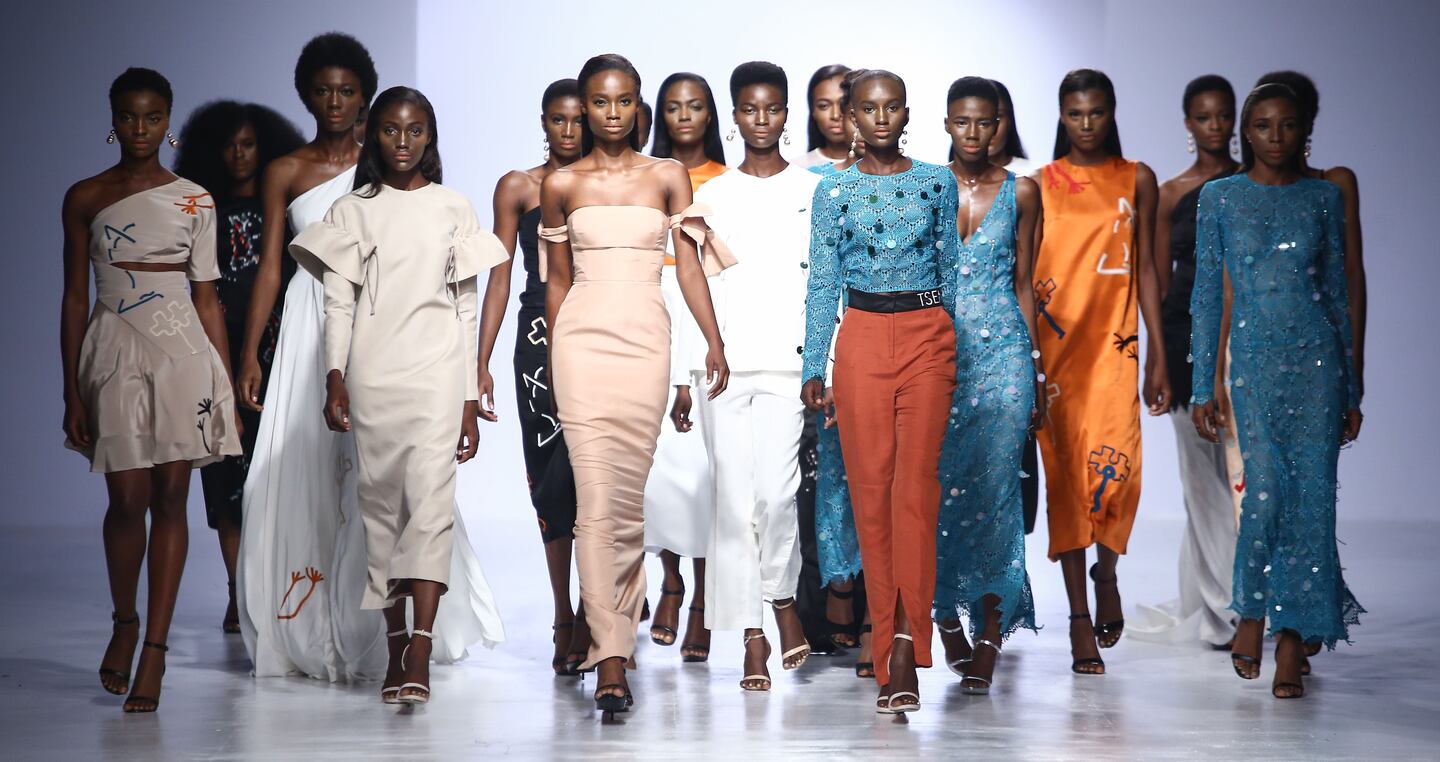
Omoyemi Akerele had one thing on her mind ten years ago and she wanted the world to hear it loud and clear. “Business can be done here. And by here, I mean Lagos, and by Lagos, I mean, Nigeria, and by extension, I mean, West Africa,” she says. “It was important to send a consistent message.”
Today, Akerele is looking toward the continent once again. The latest edition of Lagos Fashion Week is focused on the future of African manufacturing, as she presents Woven Threads II, a three-day event looking at sustainable models for growth. Runway shows are expected to return in October, assuming that pandemic restrictions are lifted in time for the next season.
Akerele never set out to start a fashion week. The lawyer, turned editor, turned artistic director says she was simply looking for an opportunity to centralise Nigeria’s fashion industry.
“There was room for a platform or a movement that would be the catalyst to try to bring everyone together towards a fixed way of doing things and to work towards positioning fashion as business in Nigeria,” says Akerele.
ADVERTISEMENT
Back then, Akerele was an editor at True Love West Africa, a pioneering women’s fashion magazine in Nigeria, and someone who already had experience consulting for standalone events like This Day Style Fashion Shows and creating shows for textile companies such as Vlisco, through her creative agency Style House Files. Yet, most fashion shows in the Nigerian context were not yet seen as an actual means for developing a fashion industry.
I remember thinking, ‘so that’s it for those designers?’ That got me fired up.
Akerele remembers being at a fashion event as early as 2004. The models that traipsed down the runway were a secondary act to the major musicians and other performers on stage and the clothes they were wearing were treated as an afterthought. “I remember thinking, ‘so that’s it for those designers?’ I was thinking, ‘what’s next? Where do you buy these designs? Where are they sourcing from?’ And those are all the things that got me fired up, even though it was just an idea at the time.”
Akerele’s desire was to build something inherently Nigerian, that represented the best of the country’s talent and would address the complex nature of building a fashion business in the country. She wanted to prove that fashion, particularly Nigerian fashion, is an industry worth investing in, and helped build out the ecosystem to do just that.
“I think she really wanted to be a connector, and to tell the Nigerian fashion story,” says Oyikansola Momoh, the founder of image development agency Muslimah Style Guide. Momoh has seen Akerele in action at close proximity, having worked with her both at Lagos Fashion Week (LFW) and Style House Files at the time.
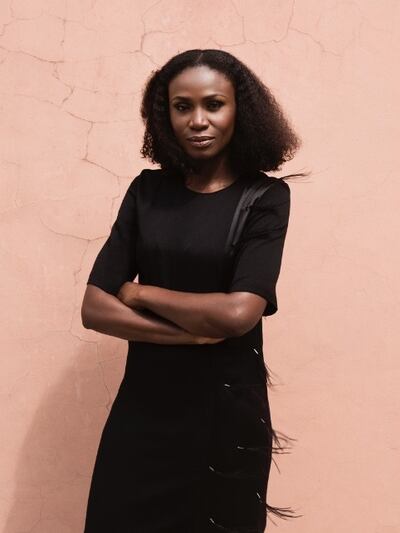
Akerele is reluctant to open up about herself but when asked about LFW, she becomes animated and reels off the pillars of the platform. “Access to market, capacity building, skills development, talent discovery, showcasing opportunities for designers, and advocacy. That’s what we committed to since inception,” she says.
When pressed to put the event into more personal context, she pauses before finally recounting an experience at a BoF event in Florence in 2012. She, among other guests, had to choose words to define what fashion meant to them. Akerele’s phrase was, “Fashion Saves Lives.”
The impromptu slogan referred to the economic opportunities that both the local and global industry provides for people across the value chain, notwithstanding the improvements that need to be made to the system to make it more just and sustainable.
“Fashion can contribute significantly to the change we need around us and what really inspires me is discovering how we can use that tool season in, season out to contribute to saving lives by connecting the dots,” she says.
ADVERTISEMENT
Making a Case for Investing in Fashion
A few years before Lagos Fashion Week launched in 2011, Akerele and her husband, Tokunbo, who serves as chairman at Style House Files, approached banks and telecommunications companies for financial support to launch the platform. But what Akerele saw as an industry poised to create significant economic and social growth for the country, potential funders saw as a side show and not something that would provide a sufficient return on an investment for them.
“They didn’t see [fashion] as something tangible that would help build their brand,” says Tokunbo Akerele.
It wasn’t as if fashion was a negligible industry. Nigerian designers were showcasing their wares and selling them independently, while 40-foot shipping containers full of secondhand clothes flooded Nigerian markets through nearby countries like Benin and Togo.
Despite the initial resistance, Omoyemi Akerele kept going back to potential funders to make her case. “My theory and my philosophy still remain the same. It can be ‘no’ today, but that doesn’t mean it will be ‘no’ tomorrow,” she says.
She took a risk, she had a vision, and she laid the foundation.
In 2011, telecommunications company MTN said yes, and became the first headline sponsor of what was then known as Lagos Fashion and Design Week. Following that, GTBank, one of the country’s largest homegrown financial institutions came on board as a sponsor, before parting with Lagos Fashion Week and headlining their own fashion weekend in 2016.
Since 2015, Heineken has been the event’s headline sponsor. “Heineken’s overarching goal for LFW and Nigeria’s fashion industry is quite simple,” says Aishat Anaekwe, a senior brand manager at Heineken.
“It’s to ensure that opportunities abound in the sector for skills acquisition, apparel manufacturing, access to the market and more as part of our continued effort to connect the dots within the fashion and economic landscape.”
ADVERTISEMENT
Since the launch of Lagos Fashion Week, Nigeria has seen an explosion of fashion week events, funded mostly by banks. There is also Arise Fashion Week, which hosted shows in New York and South Africa as early as 2009, before showcasing in Lagos in 2011. Six years since its last show, Arise returned once again to Lagos in 2018.
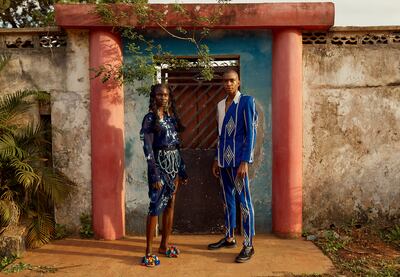
Some Nigerian designers have spoken out about the fragmentation created by the increasing number of competing fashion weeks, but many say that Akerele’s consistent efforts with Lagos Fashion Week stand out for bringing global attention to Nigeria’s fashion industry.
“She took a risk, she had a vision, and she laid the foundation,” says Bola Balogun, Marketing Director and Chief Executive of Lagos-based Glam Brand Agency.
“It’s not like she’s the first person to do this per se, but it was entertainment [before] this woman made into a business,” she adds. “She created something that will [live on] for years.”
Akerele’s progress shines brightly against the dim backdrop of Nigeria’s notoriously challenging business environment and its over-reliance on oil that stifles investment in other sectors. Inflation steadily reached its highest point in over four years last March, and according to a manufacturing association in Nigeria an estimated 250,000 people are out of work due to the decline in the sector.
Building an Industry Via Fashion Week
The first year of Lagos Fashion Week was exhilarating for Akerele and her team. In four days, more than 20 designers showcased their work, dozens of models strutted down the runway and Lagos was alight with the same frenetic energy of fashion capitals around the world. But for many, LFW’s debut wasn’t just about the show.
“We looked inward and saw the best of ourselves, our own models, our own aesthetic, our own stories, and [Lagos Fashion Week] put all that on our own runway,” says Godson Ukaegbu, Nigerian author and editor-in-chief of Style Mania fashion magazine.
The commercial element was important for Akerele to get right from the beginning. A year before founding fashion week, Akerele and her team at Style House Files started using the phrase “Buy Nigerian” as a way of introducing local designers into the consumer conscience. She also hoped to use LFW as a way to give Nigerian designers access to international consumers. Buyers from international retailers like Selfridges and Mytheresa, and prominent editors like Suzy Menkes were duly invited to Lagos over the last nine Octobers (2020 was cancelled due to the pandemic) to see what Nigerian designers had in store for them.
According to Momoh, the team was laser focused on building awareness for Nigerian designers at the time. “She always used to say that she really wanted [Lagos Fashion Week] to put Nigeria on the global fashion map, and that is what really drove us in the early days.”
These platforms are born for showing what’s behind the designs, which is a country.
Sara Maino, deputy director of Vogue Italia and head of Vogue Talents, was one such convert. Maino, who recently featured designers from Lagos Fashion Week in an editorial for Vogue Italia to celebrate the 10th anniversary of Vogue Talents, believes that “these platforms are born for showing what’s behind the designs, which is a country.”
Nigeria has long been a country with major spending power for international fashion. Recent data by Statista shows that visitors from Nigeria presented the highest travel expenditure on visits to the United Kingdom in 2019 compared to other African countries. But what Lagos Fashion Week hoped to do was show international buyers that Nigeria also has the potential to become a hub for new design talent and is a country open for commerce.
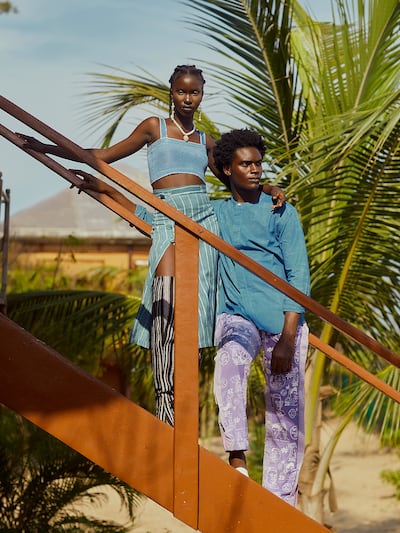
In June 2012, five Nigerian designers presented at the Florence-based trade fair Pitti Uomo. “Nigeria was one of the first Guest Nation projects that we presented at Pitti Uomo, back then,” said Pitti Immagine Chief Executive Raffaello Napoleone in a statement. According to Napoleone, it was an encounter with Akerele and Lagos Fashion Week and a growing interest in international talent that set the stage and made Nigeria a priority.
Since then, many designers that have showcased on the Lagos Fashion Week runway have seen their designs stocked in stores across the world and have been recognised by industry leaders like Vogue Italia’s Maino. Brands including Maki Oh and Lisa Folawiyo, who have showcased at LFW almost since its inception, have garnered commercial success and a celebrity following. Alumni like Kenneth Ize and Lagos Space Programme’s designer Adeju Thompson have both been nominees for the LVMH Prize.
According to Adebayo Oke-Lawal, creative director of Orange Culture and finalist for the 2014 LVMH Prize, Lagos Fashion Week provided a vehicle for many Nigerian brands to compete on a global scale. With talent alone, it’s possible that many of the brands that have had success would have achieved it either way but what Akerele’s platform did was close some of the gaps, he says. “They provided great opportunities for young brands in Nigeria … that don’t have the access to the kind of funding an international brand would have.”
Fashion Focus is one way Lagos Fashion Week aims to do this. The incubator programme for young designers has existed in some capacity since LFW’s inception and has notable alumni like Oke-Lawal’s Orange Culture and Kenneth Ize. According to Momoh, the programme’s strength is in its ability to provide mentorship, training, and since 2018, financial support for young designers in Nigeria, and across the continent, looking to grow their brands.
Ibrahim Aminu, creative director of the Kaduna-based brand, House of Kaya, applied to Fashion Focus in 2014, because he didn’t see designers from northern Nigeria sufficiently represented in the mainstream and was frustrated by the region’s lack of recognition as a place for serious fashion creation and consumption. So, when Fashion Focus made a stop in Nigeria’s capital city Abuja, Aminu auditioned and was accepted into the programme. More than just exposure, “Fashion Focus gives you a community,” Aminu says.
Enabling young startups to scale to become viable businesses is something that takes up a lot of time for fashion week founders like Akerele but it is not their sole mission. According to Lucilla Booyzen, who has run South Africa Fashion Week for more than two decades, platforms like hers, Lagos Fashion Week and others on the continent are there to provide education, infrastructure and advocacy for policy that will support the industry’s growth. “It is vital that the countries in Africa develop their own creative fashion and design industries,” says Booyzen.
The continent’s largest economies represent attractive domestic fashion markets in their own right for many local designers. The Nigerian apparel and footwear market is currently worth more than $1.297 billion at retail (after declining to $1.290 last year due to the impact of Covid-19) and is forecast to grow next year reaching more than $1.329 billion, according to Euromonitor International. This represents a partial recovery against the market’s pre-pandemic high of $1.367 billion in 2019.
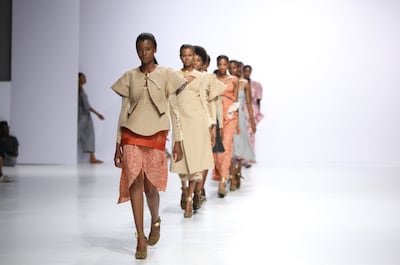
Fashion Fuelled Economic Growth
Akerele has been keen on making sure that designers are not the only beneficiaries of the industry’s growing success. During her time as an editor at True Love, she was part of a small group of pioneers who helped build the nascent industry. According to Bola Atta, who served as the editor-in-chief of True Love West Africa from 2004 to 2010, their collective efforts helped create a ripple effect.
“There was a lot of building,” says Atta. While there were designers in significant numbers, makeup artists, stylists, and photographers were few and far between. Atta’s approach was to train locals. “I didn’t want to import the talent and skills. I wanted to develop what we had on the ground because it wouldn’t be sustainable to do otherwise,” says Atta. It’s a similar approach that Akerele has taken with Lagos Fashion Week.
What happens at Lagos Fashion Week ultimately translates to jobs for Nigerian people [across] the value chain.
Programmes like Style House Files Trains, the training and manufacturing arm of Akerele’s platform, is what she seems most passionate about because of its ability to generate employment. In partnership with the Nigerian Export Promotion Council (NEPC), Akerele and her team train garment manufacturers in Lagos with the hope of ensuring that designers can produce their designs in the country, creating a skilled workforce.
“When you take a holistic view of the entire fashion value chain, you find that what happens at Lagos Fashion Week ultimately translates to jobs for Nigerian people within the fashion ecosystem which ranges from design to production, to marketing, to journalism, ICT, logistics among others,” says NEPC Executive Director, Segun Awolowo.
But Awolowo notes that the performance of the fashion industry has broader national consequences, especially given Nigeria’s recent push to diversify its economy beyond oil. “Nigeria has realised that diversification can no longer wait to happen; the time to diversify is now, and fashion is one of the main sectors to help us achieve diversification,” says Awolowo.
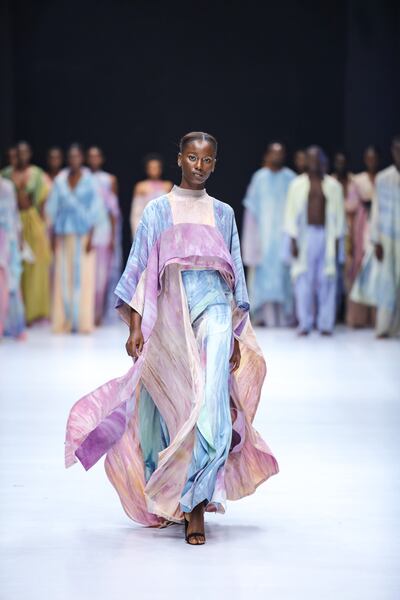
According to a 2016 report by African Development Bank’s Fashionomics, West African countries are the worst positioned to compete globally as apparel producers. The authors note that enhancing job opportunities for unskilled labour is one way to ensure growth. Emanuela Gregorio, coordinator of the bank’s Fashionomics Africa initiative says through its previous collaboration with Lagos Fashion Week, they are now working to expand their reach to training and knowledge sharing.
“Fashion shows should not only focus on catwalks, but they should provide an opportunity to connect with their strategic stakeholders,” says Gregorio.
The Next Decade
When asked what’s next for Lagos Fashion Week, Akerele describes it as being able to add even more value in a space that’s rapidly changing. There is no shortage of talent on the continent, she says, so the next step is to support the entire value chain from production to retail. Over the last decade, the event’s strength has lied in its ability to collaborate with people across industries and countries, with the hope of strengthening access for and to Nigeria’s fashion industry. A decade later, Akerele seems proud of the results so far, but notes that it’s time to adapt and give greater consideration to the outlook ahead.
If we’re going to be able to succeed or survive this next decade we have to consolidate all our efforts into assets.
“This is the consolidation phase. If we’re going to be able to succeed or survive this next decade we have to consolidate all our efforts into assets.” An example of this looks like an idea that has brewing between Akerele and founders of fashion weeks in Johannesburg, South Africa, Kampala, Uganda, Dakar, Senegal, Addis Ababa, Ethiopia, and Accra, Ghana for some time; a pan-African digital platform to support African talent. “It’s about coming together to build a lasting infrastructure,” says Akerele.
She is the first to concede that there are several challenges. Obtaining consistent support from the events’ respective governments and overcoming distribution challenges in a fragmented e-commerce ecosystem will be compounded by the fact that the continent is still reeling from the economic effects of Covid-19. But according to Akerele, the business potential of a pan-African approach surpasses these challenges as long as organisers are able to create mass appeal in a continent that is 1.2 billion people strong.
“We’re thinking, how do we tap into that?”
Disclaimer: Ashley Okwuosa worked as a freelance copywriter for Style House Files between 2017 and 2018.
Related Articles:
Africa’s $20 Billion E-Commerce Opportunity
Local streetwear brands, festivals and stores selling major global labels remain relatively small but the country’s community of hypebeasts and sneakerheads is growing fast.
This week’s round-up of global markets fashion business news also features Senegalese investors, an Indian menswear giant and workers’ rights in Myanmar.
Though e-commerce reshaped retailing in the US and Europe even before the pandemic, a confluence of economic, financial and logistical circumstances kept the South American nation insulated from the trend until later.
This week’s round-up of global markets fashion business news also features Korean shopping app Ably, Kenya’s second-hand clothing trade and the EU’s bid to curb forced labour in Chinese cotton.